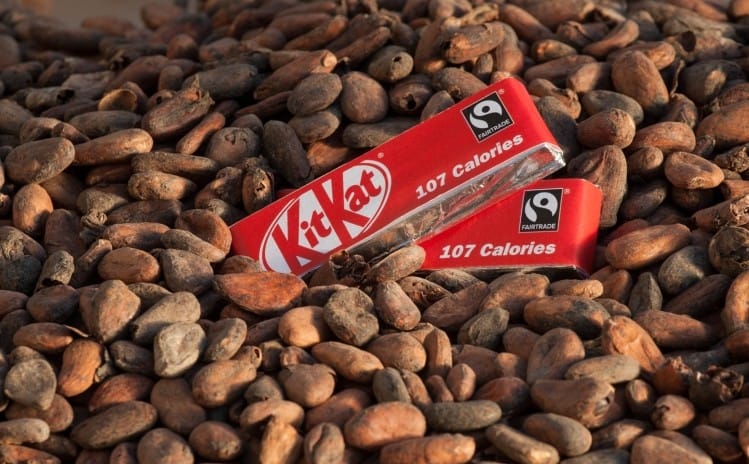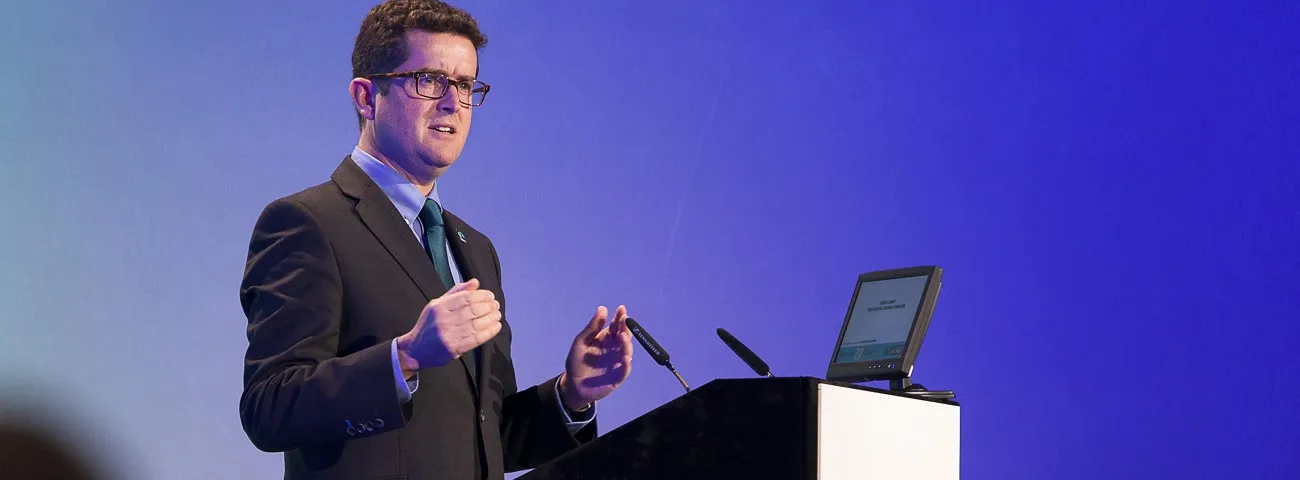Gidney has been head of the Fairtrade Foundation in the UK, which is under the Fairtrade International umbrella, for the past 12 years.
During his tenure, he skilfully steered the Fairtrade Foundation to ensure that the Fairtrade Mark is the most recognised and trusted ethical label in the UK, with 92% awareness and 88% trust among consumers, according to research company Globescan.
Now in its 30th year in the UK, Fairtrade is most strongly associated with paying a fair price to producers and enabling farmers to invest in their communities and futures. The organisation said that British people have stood by Fairtrade despite economic difficulties, generating £28m ($36.7m) in Fairtrade Premium in 2023 alone.
“There is never a perfect time to leave, but with Fairtrade in good shape, after 12 years as CEO, it feels like the right moment – and an exciting time for my successor to shape the next phase of the Fairtrade Foundation’s future,” Gidney said in a statement.
“If Fairtrade has demonstrated anything, it is the power that individuals have – on farms, in businesses, in communities across the UK and supported by the brilliant team at the Fairtrade Foundation – to make a difference.”
Mike Gidney joined the Fairtrade Foundation in 2009 as Deputy Executive Director and was appointed CEO in 2012. Before joining Fairtrade, he worked with Traidcraft, where he was instrumental in advocating for fair trade policies and practices that directly benefited smallholder farmers and artisans in developing countries.
Competition and skepticism
His appointment came when the Fairtrade movement gained traction but also faced increasing competition and skepticism. Under Gidney’s leadership, with his background in development and human rights, the Fairtrade Foundation maintained its relevance and expanded its influence in the global marketplace.
Still, Gidney’s tenure was not without challenges, namely increased competition from other ethical Labels such as Rainforest Alliance and UTZ, which often have different criteria and standards, leading to consumer confusion.
Cadbury's parent company, Mondelēz International, now uses an in-house 'Cocoa Life' certification scheme. Nestlé has a similar programme, 'Cocoa Plan', and Barry Callebaut, the largest chocolate and cocoa supplier, has 'Cocoa Horizons” while US giant Cargill has 'Cocoa Promise'. It should be noted that many of these certifications claim to be independently audited and still use Fairtrade as a partner.
Still, some critics argue that these alternatives offer similar ethical guarantees with less stringent requirements, potentially diluting the perceived value of Fairtrade certification. The Foundation has had to continuously assert the superiority and impact of its standards to maintain its reputation.
As the Fairtrade movement has grown, so has scrutiny. Some critics have questioned its effectiveness in truly transforming the lives of producers, pointing to issues like uneven benefit distribution, certification costs, and the challenges of enforcing standards in complex supply chains.
Fairtrade model
While these criticisms have not significantly undermined the Foundation’s overall reputation, they have sparked meaningful discussions about improving and adapting the Fairtrade model in a rapidly changing global economy.
In the UK, and on Gidney’s watch, supermarket giant Sainsbury’s ditched the Fairtrade logo on its own-brand teas in 2017. This decision was criticised by Fairtrade and tea producers, who feared it would undermine their autonomy and empowerment, which are core Fairtrade principles.
According to a report in the Guardian at the time, a Sainsbury’s executive singled out one of the central principles of Fairtrade’s model: the so-called “premium” above the minimum price that companies must pay, which cooperatives must use to build schools, run clinics, or improve their communities in other ways. Sainsbury’s was allegedly concerned that the premium was being poorly used and that it was money wasted.
KitKat ends its Fairtrade partnership
In 2020, KitKat, still manufactured in York, cut its ties with Fairtrade after parent company Nestlé opted for a new partnership with the Rainforest Alliance as a source of sustainable cocoa for its hugely popular chocolate brand. Nestlé already used Rainforest Alliance-certified farmers in other bars, including Aero and Yorkie.

Commenting at the time on Nestlé’s actions, Gidney said its cocoa farmers in Cote d’Ivoire were “devastated” by the news.
The COVID-19 pandemic
Another challenge was the global COVID-19 pandemic, which disrupted supply chains and profoundly impacted smallholder farmers and workers. Gidney led the Foundation’s response, which included launching emergency relief funds and supporting producers in adapting to the new realities of global trade. His efforts ensured that Fairtrade producers remained resilient despite unprecedented challenges.
Setbacks aside, Gidney has also played a critical role in strengthening Fairtrade’s business relationships. Under his leadership, the Foundation forged partnerships with major corporations such as Mars, Tony’s Chocolonely, and Co-op, integrating Fairtrade principles into their supply chains.
His personal commitment to transparency and maintaining the authenticity of the Fairtrade brand helped preserve its credibility during times when consumer trust in ethical labels was being tested.
Lydia Stubbins, Group Marketing Director, Divine Chocolate, told CocoaRadar: “Divine has been a long-standing Fairtrade supporter, having been Fairtrade since the brand’s inception… and almost as long as Fairtrade has been around itself. In the last 12 years, Fairtrade has become a household name, and consumers' understanding of the benefits that buying Fairtrade brings has grown. We celebrate the progress Fairtrade made under Mike’s leadership and look forward to the next chapter for the Fairtrade Foundation.”
Gidney's legacy
Mike Gidney’s legacy is one of growth, resilience, and unwavering commitment to Fairtrade principles. He leaves behind an organisation that is not only larger and more influential but also more deeply connected to the communities it serves. Under his leadership, the Fairtrade Foundation has become a beacon of ethical trade, advocating for a more just and sustainable global economy.
The Fairtrade Foundation also announced it has appointed Dr Nyagoy Nyong’o as the new Chair of its Board of Trustees, succeeding Lord Mark Price, whose term ended recently.
Mike Gidney will step down from his role at the end of 2024, and a successor will be announced then.

